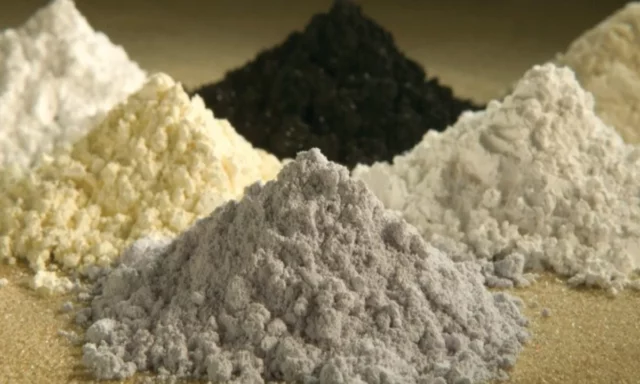The so-called rare earths, that list of 17 chemical elements from the periodic table, are a valuable resource for modern technology thanks to their ionic and conductive properties. Its applications can be found in medical, military and telecommunications equipment. They are also playing a fundamental role in the green transition thanks to their use in the manufacture of electric cars and wind turbines. It is therefore not surprising that they are becoming a very important piece on the geopolitical chessboard. And Canada, one of the mining powers, is looking for a way to get a slice.
Major Western economies are making various moves to confront China’s might in the rare earths sector and Russia’s emerging trajectory. The invasion of Ukraine has also been a blow to the board given its impact on supply chains. China ranks first in the extraction of these chemical elements (about 127,000 tons in 2020; more than 60% of the world’s supply) while Russia is located in fourth place. The European Commission is promoting the approval of a law and an investment fund to increase its autonomy in rare earths and other strategic resources. For its part, Canada signed in December 2019, along with Australia and other countries, an initiative led by the United States to reduce this dependency.
According to a report by MarketsandMarkets, the global rare earth market will reach an annual value of US$9.6 billion by 2026; the consultant calculates that it reached 5,300 million in 2021. The United States Geological Survey published a list of approximate prices of these elements that were paid last year. For example, the kilogram of terbium stood at 1,300 dollars, while that of dysprosium and europium reached 400 and 310 dollars, respectively.
Last May, the first Canadian rare earth mine began delivering its concentrates. This is Nechalacho, located in the Northwest Territories. This mine is the second operating in North America (the other is Mountain Pass, in California). Cheetah Resources, the company that owns it, expects to produce 25,000 tons a year from 2025. Its directors indicated that it is a big step for Canada and its allies to gain independence from the Chinese supply chain.
Some of the largest known reserves
Natural Resources Canada has noted that the country has some of the largest known reserves of rare earths in the world. The Government of Justin Trudeau has budgeted 3,800 million dollars to support the development and application of the Critical Minerals Strategy, which includes rare earths. The Nechalacho mine is just a first move, as there are currently 21 exploration projects. Some of them are Moose Lake (Saskatchewan), Kipawa (Quebec), and Red Wine (Newfoundland and Labrador).
The plans go beyond Canadian borders
Neo Performance Materials, a company based in Toronto, announced in August the acquisition of rare earth mining rights in the Sarfaroq deposit (Greenland); rights acquired from Hudson Resources, a British Columbia company. Said negotiation contemplates the payment of more than three million dollars, as long as the Greenlandic Government approves the transfer of the license. Other Canadian projects abroad are located in Malawi (run by Mkango Resources) and Alaska (run by Ucore Rare Metals).
At the end of August, the Canadian Executive signed a memorandum of understanding with Volkswagen and Mercedes Benz to facilitate the supply —by Canadian companies— of materials for their electric vehicle batteries. The document is focused on cobalt, graphite, nickel and lithium, although it could open the door to other elements. “There is a more pressing need than ever for critical minerals and rare earths, and if we want to demonstrate a cleaner and greener world, we can no longer accept that our minerals and inputs for our way of life come from authoritarian countries,” said Justin Trudeau after the signing of the agreement.
Canada and its allies seek to expand the extraction of these resources. However, its separation and refinement are carried out in other parts of the planet. Jean-François Boulanger, professor of mining engineering at the University of Quebec, says that, for example, Neo plans to do it in Estonia if the project in Greenland progresses. And he adds that it is difficult to compete with the Chinese domain (it accounts for about 85% of the world’s processing capacity). Beijing is frequently accused of dumping for its rare earth strategy. “We can open more mines, but breaking Chinese domination requires strong investment.” It is a sector, according to this expert, in which investors still do not have much clarity about the future evolution of prices.
Environmental impact
The extraction, separation and refining of rare earths are of environmental concern. “The so-called ‘clean’ energies need to resort to rare minerals, whose exploitation is anything but clean,” says journalist Guillaume Pitron in his book The War of Rare Metals. Huge volumes of rock removed, use of large amounts of acids, hazardous waste (some radioactive) and risks of contamination in air, land and water are denounced by different organizations, as well as the carbon footprint generated by its transport to processing sites.
Rodrigue Turgeon, co-director of the MiningWatch Canada program, points out about caring for the environment and rare earths: “We are in a race against time, but this should not be an excuse to do anything.” Turgeon stresses that a full environmental assessment and consultation work with the communities where these resources are to be extracted or processed is required; also that priority should be given to its recycling and its use in technologies to replace hydrocarbons.

A globalized industry
“Mining is a globalized industry, as are the negative impacts on the environment. What happens in distant areas also affects us”, says Turgeon, although he specifies: “Canada is not in a position to give lessons to other countries. It has been very accommodating to its mining companies. Both in rare earths and in other resources, the Canadian Government has responsibility for what its companies do, inside and outside the country”.


